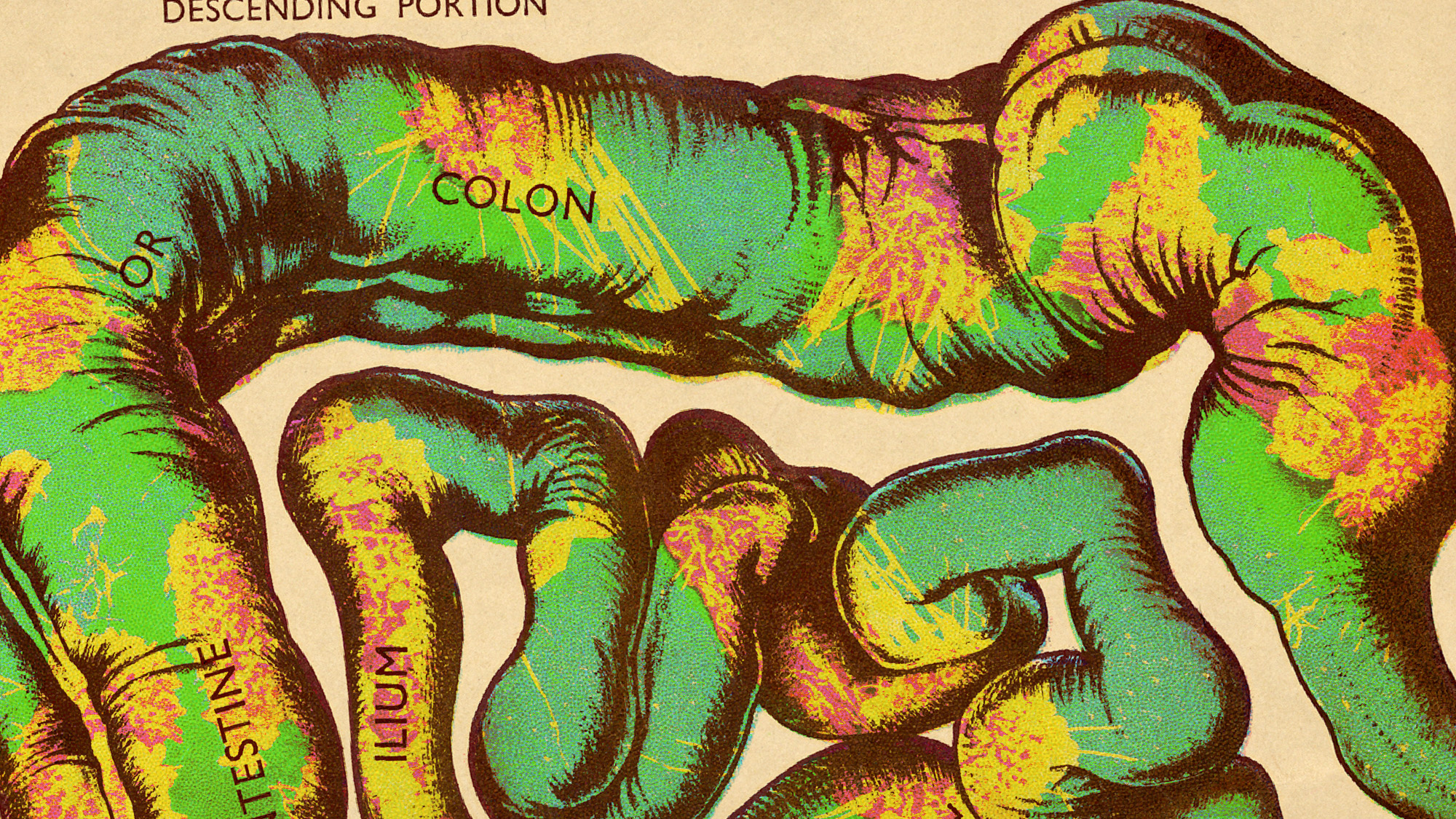A bacterial toxin could be contributing to the colorectal cancer rise in young people
Most exposure occurs in childhood


A free daily email with the biggest news stories of the day – and the best features from TheWeek.com
You are now subscribed
Your newsletter sign-up was successful
Colorectal cancer has increased significantly over the past 20 years among adults under 50. Now scientists may have identified a potential factor in the rise: a toxin called colibactin. Exposure to the toxin happens in childhood and could be manipulating DNA to increase cancer risk.
Toxin timeline
Colibactin was linked to colorectal cancer cases in younger people, according to a study published in the journal Nature. The toxin has been known to cause DNA damage and is produced by several species of harmful gut bacteria, including E. coli. The recent study looked at tissue samples from close to 1,000 colorectal cancer patients across the world and found that "around 50% of early-onset colorectal cancers in individuals under 40 carried the distinctive signature of colibactin exposure," said senior study author Ludmil Alexandrov, a bioengineering and cellular and molecular medicine professor at UC San Diego, to NBC News.
Colibactin is a "genotoxin" and the "weapon system of a bacteria to fight other bacteria and to defend themselves," said Alexandrov. It can "get directed" to the gut cells and seed mutations, increasing the risk of developing colorectal cancer, said NPR. Also, exposure to colibactin happens well before a cancer diagnosis, usually in early life. "Our estimate is that it happens within the first 10 years of life," Alexandrov said. "So if you get that mutation at age 5, that puts you 20 to 30 years ahead of schedule for getting colorectal cancer."
The Week
Escape your echo chamber. Get the facts behind the news, plus analysis from multiple perspectives.

Sign up for The Week's Free Newsletters
From our morning news briefing to a weekly Good News Newsletter, get the best of The Week delivered directly to your inbox.
From our morning news briefing to a weekly Good News Newsletter, get the best of The Week delivered directly to your inbox.
There are "several plausible hypotheses" as to how children can be exposed to colibactin, including "early-life antibiotic use, which may allow these strains to establish more easily; dietary shifts such as increased consumption of processed foods or reduced fiber consumption; increased rates of C-section births or reduced breastfeeding; and wider use of early group childcare which could facilitate microbial transmission during a critical developmental window," Alexandrov said. While the study linked colibactin to cases of cancer, it does not prove that the toxin actually causes it.
Cancer causes
Scientists have observed an alarming rise in colorectal and gastrointestinal cancers in people under 50 since the mid-1990s but have not been able to pinpoint a specific cause. The disease's "incidence in adults under 50 has roughly doubled every decade for the past 20 years," said a release about the study. "If current trends continue, colorectal cancer is projected to become the leading cause of cancer-related death among young adults by 2030." So while colibactin is not a definitive cause, it could be an important puzzle piece.
Previous studies had linked colibactin to colorectal cancer but "either focused on late-onset cases or did not distinguish between early- and late-onset disease," said the release. Colibactin-producing bacteria are not the only toxin to have been linked to cancer. Exposure to the microbe F. nucleatum has also been found to potentially increase the risk of colorectal cancer development. "While colibactin-producing species may cause the initial mutations that drive tumor formation, F. nucleatum may contribute to disease development by enabling the tumor to proliferate and evade the immune system," said NBC News.
A free daily email with the biggest news stories of the day – and the best features from TheWeek.com
Devika Rao has worked as a staff writer at The Week since 2022, covering science, the environment, climate and business. She previously worked as a policy associate for a nonprofit organization advocating for environmental action from a business perspective.
-
 The environmental cost of GLP-1s
The environmental cost of GLP-1sThe explainer Producing the drugs is a dirty process
-
 Nuuk becomes ground zero for Greenland’s diplomatic straits
Nuuk becomes ground zero for Greenland’s diplomatic straitsIN THE SPOTLIGHT A flurry of new consular activity in Nuuk shows how important Greenland has become to Europeans’ anxiety about American imperialism
-
 ‘This is something that happens all too often’
‘This is something that happens all too often’Instant Opinion Opinion, comment and editorials of the day
-
 Scientists are worried about amoebas
Scientists are worried about amoebasUnder the radar Small and very mighty
-
 Metal-based compounds may be the future of antibiotics
Metal-based compounds may be the future of antibioticsUnder the radar Robots can help develop them
-
 A Nipah virus outbreak in India has brought back Covid-era surveillance
A Nipah virus outbreak in India has brought back Covid-era surveillanceUnder the radar The disease can spread through animals and humans
-
 Is the US about to lose its measles elimination status?
Is the US about to lose its measles elimination status?Today's Big Question Cases are skyrocketing
-
 Mixed nuts: RFK Jr.’s new nutrition guidelines receive uneven reviews
Mixed nuts: RFK Jr.’s new nutrition guidelines receive uneven reviewsTalking Points The guidelines emphasize red meat and full-fat dairy
-
 Trump HHS slashes advised child vaccinations
Trump HHS slashes advised child vaccinationsSpeed Read In a widely condemned move, the CDC will now recommend that children get vaccinated against 11 communicable diseases, not 17
-
 The truth about vitamin supplements
The truth about vitamin supplementsThe Explainer UK industry worth £559 million but scientific evidence of health benefits is ‘complicated’
-
 Deaths of children under 5 have gone up for the first time this century
Deaths of children under 5 have gone up for the first time this centuryUnder the radar Poor funding is the culprit
